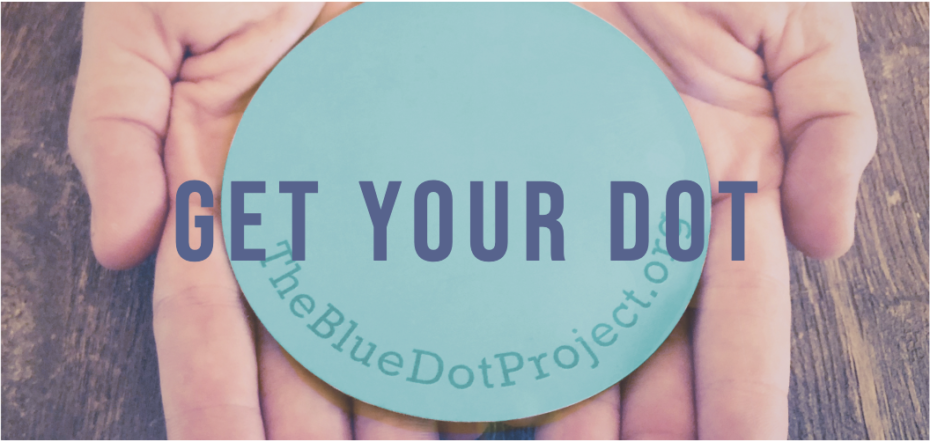Monday, April 29th – Friday, May 3rd
Maternal depression is a common experience of women in the United States, affecting more of our mothers than gestational diabetes and preeclampsia combined. Here in Monterey County, an estimated 1,000 women annually experience postpartum depressive symptoms, representing 15% of the women giving birth in the county (CDPH – Maternal, Child and Adolescent Health Division Data Brief Summer 2018). Untreated maternal mental health disorders (MMH) can significantly and negatively impact the short- and long-term health and wellbeing of affected women and their children.
MMH disorders include depression, anxiety, and the less common but most severe of the disorders, postpartum psychosis. Left undetected and untreated, these conditions can lead to negative health outcomes for the mother, and can negatively affect the mother-child bond and the child’s long-term physical, emotional, and developmental health. Despite these consequences, screening for MMH disorders is not routine across health systems. Even when MMH disorders are detected, treatment occurs in less than 15 percent of identified cases (California Task Force on the Status of Maternal Mental Health Care, 2017). Additionally, the financial cost of untreated maternal mental health conditions can be significant (for example, more use of emergency care services, higher rates of absenteeism at work, etc.).
In 2018, Governor Jerry Brown signed into law a number of bills addressing maternal mental health, including the requirement that effective July 1, 2019 obstetric providers must confirm screening for maternal depression has occurred or to screen women directly, at least once during pregnancy or the postpartum period. It also requires private and public (Medicaid) health plans (HMOs) and health insurers (PPOs) to create maternal mental health programs.
All women are at risk for perinatal mood and anxiety disorders, however some groups of women are at a higher risk due to the social determinants of health (the conditions in which people are born, live, and work). Women with the following characteristics are at an elevated risk in California – those who experience symptoms of depression during pregnancy, Black and Latina women, those with an income level below poverty, and women with Medi-Cal for prenatal care.
The Monterey County Maternal Mental Health Task Force is currently working on a number of projects to train practitioners on maternal mental health and screening, improve referrals for those in need of treatment and/or services, increase awareness of services and reduce stigma of Perinatal Mood and Anxiety Disorders in Monterey County.
The annual maternal mental health awareness social media campaign was launched by the Blue Dot Project in 2015 to reach mothers, families and the general public with messages acknowledging how difficult motherhood can be. This includes addressing the fact that maternal mental health disorders, like postpartum depression, impact up to one in five women, and that therapy and other forms of treatment can help. The BlueDot, the international symbol for MMH is shared on memes used during the campaign. The aim is to combat stigma and shame, and to empower mothers and families to advocate for support and care when needed. Together we can reach mothers, and those who support them, to “make over” the image of a perfect motherhood and the notion moms can do it all without support.
Be sure to like Bright Beginnings Monterey County on Facebook and follow on Twitter and Instagram to stay up-to-date on our progress.
How do I help someone struggling with Perinatal Mood and Anxiety Disorders (PMAD)?
- Help her out with everyday tasks — errands, grocery shopping, cleaning
- Provide meals: Bring over a prepared, heat-and-serve meal in a disposable dish (one less thing to wash and return) or send her a meal delivery service.
- Give her some alone time, if she needs it
- If her baby isn’t her firstborn, offer to take her older child out for the day and frame it as an outing as a playdate for your child, and it may make her feel like she is helping you out.
- Play sitter for the afternoon — let her rest, or shower, while you watch the baby.
- Keep in close contact — stay in touch, even if you can’t visit often.
- Ask her how she is doing, encourage her to talk about how she feels, without judgement or advice, and listen.
- Help her get professional help — connect her with local resources, drive her to a support group, and care for her baby while she’s caring for herself.
- Don’t give up on her – Even if your friend has stopped returning your calls or texts, keep at it, but don’t overdo it. Let her know that she’s not alone and that you are there for her.
Source: “How to Help a Friend With Postpartum Depression,” Fit Magazine, by Pamela Brill, as interviewed by experts in the field of maternal mental health, including the author of The Guide to Postpartum Stress, Anxiety and Depression, Dr. Sarah Allen.

